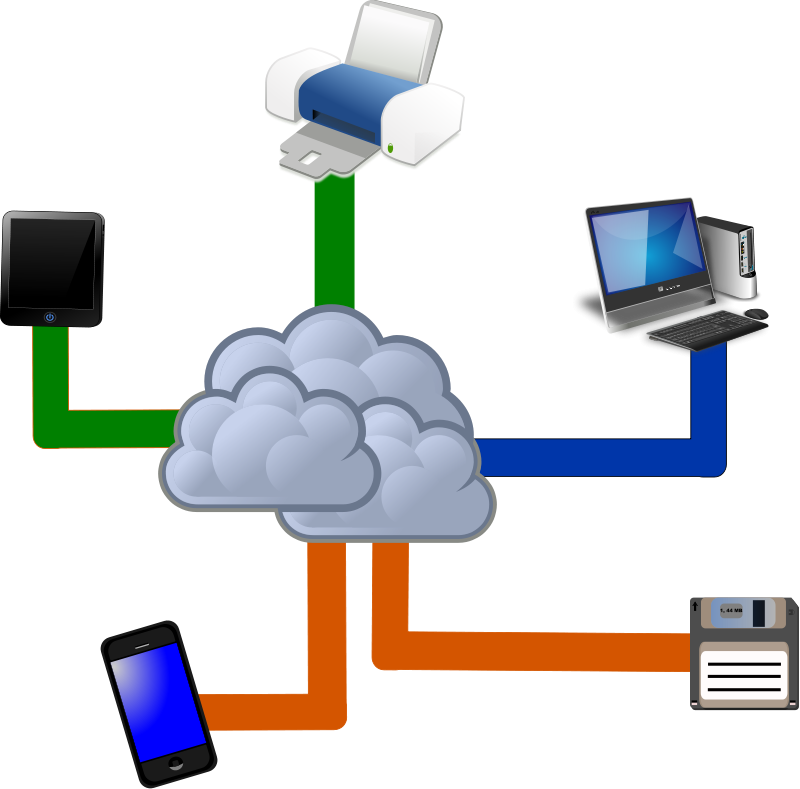| Previous
Page |
PCLinuxOS
Magazine |
PCLinuxOS |
Article List |
Disclaimer |
Next Page |
Cloud Computing & The Third World
|
|
by Pieter Louw We live in a wonderful world today, where connectivity aided by advanced technology makes life so much easier than just the day before. Cape Town is less than half a day away from London by air, compared to the same voyage three centuries ago that may have taken three to four months! It is exciting to see the development in communications and how it turns the world into a better place. Information technology lifted the veil that had clouded much of the world beyond the horizon in mystery. The technological advancement of gadgets sees an incremental growth and, unlike a short decade ago, mobile phones are being used for a host of different functions. Only about ten per cent of its use nowadays involves making phone calls!  Africa is the only continent where ownership of cellular phones outstrips that of fixed lines. It is not uncommon to see even very poor individuals carrying two or more mobile phones. This is so because some need to have access to GSM networks all the time but, due to random availability of signal coverage by any specific supplier in a given area, users sometimes may need more than one operator. For instance, a user may need to lug around a Vodacom device when visiting a rural area, MTN for the CBD and 8ta for fast HSDPA coverage in between. Dual-SIM devices such as the excellent Samsung Duos sees its sales being suppressed by mobile operators in South Africa, which is sad. If it is not approved by ICASA, it may even be a criminal offence to have it in your possession! Smartphones and computers are being designed and built to connect via the cloud nowadays, by people living in developed countries who never may have known a world sans wireless broadband altogether. They assume that everybody on earth has no need for USB connectivity. Bluetooth, to them, may have no reason to exist, etc. They are used to steering their course through life with the automated ease of appliances and devices that just never require someone to stop for opening a gate, or having to draw a pile of water, or having to snare something for dinner. They harvest at the mall and remain connected wherever they are. They then proceed to create devices and systems that will also be used in developing countries, where billions of people still have no potable water or flushing toilets. In my country, millions live in corrugated iron shacks and ride bicycles or travel on horseback. We are the most advanced country on the African continent. Yet, even in the legislative capital with some four million residents, it is quite easy to find a spot where not even Mxit or Whatsapp will function. Apple and others seemingly try to force us through the cloud, something that does not exist in these countries, mostly. Android devices also have their difficulties connecting to a PC to sync, and all and sundry are lobbying for Nokia PC Suite-alike functionality for all mobile phones. That should be part of all computer operating systems by default. That is the ideal.  Applications such as Mobisynapse and Airdroid assist users of MS Windows in connecting directly via USB or Bluetooth, but exclude Linux users. The name Airdroid is descriptive and I am not blind to that. It is a free app which we do appreciate for what it is. I am also not ungrateful for a free app that works well. Finding devices that can use it independently in developing countries is a real challenge. Because of the insane cost of MS Windows, honest folks like myself use Linux, but 38% of Windows software installed in my country are pirated copies. Windows XP SP3 as well as Windows 7 Ultimate are even sold with used computers on Gumtree, much of it illegitimately. Just look at the many ads on Gumtree.co.za that offer used laptops sporting Windows 7 Ultimate -- and I will be surprised if even ONE of these is legitimate! Simply because mobile phone manufacturers disrespect Linux users, they leave cash-strapped users with no option but to use MS Windows. As this operating system is prohibitively expensive, this gives rise to the software being pirated en masse. Finding an integrated system on a limited budget in a developing country with erratic and insanely expensive internet connectivity becomes a quest at the very least. Phone and PC can't link to sync, there is little or no cloud and, even where present, most people simply cannot afford it. First world countries make laws that effectively exclude their third world trade partners from transacting with them. Third world countries simply cannot afford the infrastructure to provide for its impoverished users. It means that the first world countries are fencing themselves in and also alienating themselves from markets that must buy their products. The first world seems to be ignorant of how their decisions affect others. There is a real need out there for an Airdroid-like application that will also be a "cable-droid" via USB, or at the very least, via Bluetooth. It should ideally support at least Linux, as the latter is being used widely by those not having access to higher specification computer systems. It could be offered as a feature-rich paid application with a thinware free equivalent, with limited functionality. In meeting the ICT needs of developing countries, the first world will be exposing itself to a few billion more humans patronising them economically. People here still spend hours in internet cafes every day, as there is neither land-line nor cellular connectivity where they live. They travel relatively long distances to even get to such outlets. They do so, as they need to use the internet for educational purposes as well as for commercial ends. If we get these people to connect with others in a meaningful way, the economy can grow and new markets will be opening up. Manufacturers in developed countries will have better access to the raw materials they need and will also enjoy better exposure for their products to new consumer markets. USB or Bluetooth connectivity is an absolute must, and I sincerely hope that someone will act upon this information and get going. I call upon Linux developers to consider this when developing the next distro or release -- make a combination of USB, Bluetooth and WLAN connectivity part of your systems architecture, especially now that we see Linux on computers, mobile phones, tablets and TVs. Third world users really require this functionality to become economically active, something that will also affect the economies of first world countries positively. The following factors impact heavily upon technology users and, in forcing them through the cloud, will alienate them from both the rest of the world and their own bouquet of devices. I will paraphrase to explain the above-mentioned problem hopefully with more clarity down below. SIGNAL AVAILABILITY AND "CLOUD COVERAGE."
Perhaps vendors should be listening more to their clients, instead of forcing people into the cloud and out of options by doing so. Cellular phone makers, such as Nokia, are missing out hugely upon sales of new devices in a burgeoning market simply because they don't port Nokia Suite to Linux, for instance. Instead, they recently had to retrench ten thousand staff, people who may still have had an income, had Nokia listened to my voice and that of others! It is disappointing to see how end users become voiceless because of mobile phone manufacturers, systems developers and other role players who a) disregard requests from clients and b) become inaccessible by virtue of automated, or at least impersonal, help desks. If we want to see the world progress in a meaningful way, we need to start using the technology at hand to truly communicate. XYZ's support people send an automated response every time I lodge a request, but they never follow up on this with me. XYZ Forum is an unfriendly place where one has to fit into a rigid, frigid matrix or be reprimanded. Is this how they want to attract users? It is time for technology providers to mature into being effective communicators. Bullying end users into submission while forcing irrelevant technology upon them is rather unwise. |




